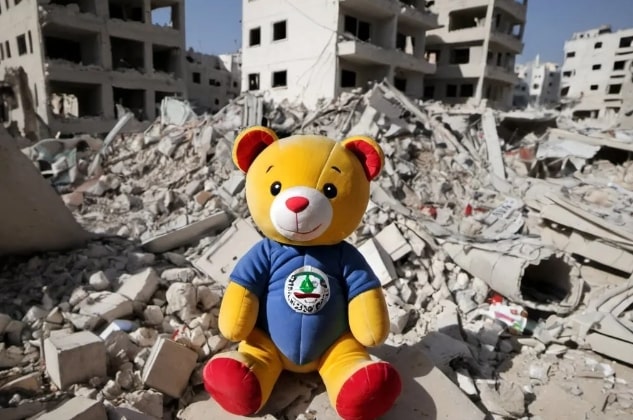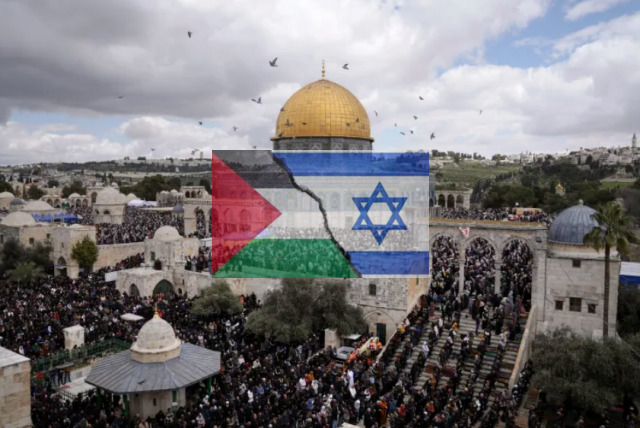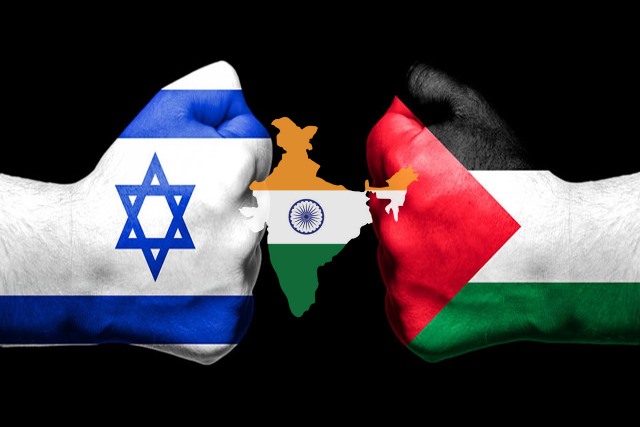So what is it that compels the entire world to surrender before the bullish and brutal might of a tiny country like Israel?
Why is it that global powers and the United Nations are simply unable to stop the mass murders and targeted assassinations unleashed by Israel, relentlessly, without a pause, year after year?
Even as the bloodbath continues, how does the American establishment at the White House, now controlled by the Democrats, allow the deadly bombs, arms and ammunition worth billions to be supplied to Israel, year after year, knowing fully well that hospitals, refugee camps and schools would be bombed, and that scores of women and children will once again have their dead bodies displayed on another blood-soaked island of rubble?
How can a so-called ‘free world democracy’ support this infinite injustice bordering on barbarism?
Surrounded by Islamic nations, how does Israel get away so easily, with the blood of innocents splattered here, there, everywhere?
In Gaza. West Bank. And, now, Beirut and Lebanon!
Why are the oil-rich Islamic countries, many of them filthy rich, totalitarian regimes backed by the US, so damn scared of Tel Aviv? Regimes which oppress and brutalize their own citizens with as much impunity as Israel does beyond its occupied borders!
And now, after the mass murder of 40,000 plus innocent people in Gaza, including over 17,000 children, it is the turn of Lebanon. Once again.
Remember the terrible two days of 18th and 19th September, 1982, when Christian militias, backed by the Israeli Defense Force (IDF), unleashed a massacre at the Sabra and Shatila camps in Lebanon, killing hundreds of Lebanese and Palestinian people. So much so, the IDF blocked the exits so that the refugees just could not escape the killers.
Thereby, in a new twist, it is the pager. And the walkie-talkie.
After the Hamas attack on Israeli-occupied territory on October 7 last year, the Iran-backed Hezbollah had asked its fighters to stop using smart phones. Instead, they were asked to use pagers.
Consequently, a consignment of pagers were commissioned. Israeli intelligence, which is perhaps the best in the world, reportedly penetrated this consignment and inserted small quantities of explosives inside the pagers. In some mysterious, and sinister manner, these ‘subverted pagers’ found their way across the lanes and by-lanes of Beirut and elsewhere, among ordinary folks.
If anything, it reinforces the theory that since it is not always easy to hit the underground Hamas or Hezbollah guerillas, Tel Aviv compulsively chooses to target ordinary folks. This seems to be its time-tested strategy.
So, what happened? Yes, another bloodbath!
This time, scattered, all across Beirut and the towns and suburbs of Lebanon.
Perhaps, a child buying a lolly-pop found herself blown up, because the shopkeeper switched on the pager. Perhaps, a fruit-seller’s limbs were scattered all over, because the housewife buying his fruits used a pager. Perhaps, a grocery shop exploded because a customer got a message on his pager.
Several people died. Thousands were injured. Most had their limbs, torso, groin, face and eyes destroyed. In all practical terms, they have been rendered permanently disabled for all their lives — kids, mothers, fathers, daughters, granddaughters.
Hospitals were swarming with the injured. Ambulances rushed all over Beirut. People ran in to donate blood. The entire country went into a state of shock, immersed in helpless sorrow.
ALSO READ: Gaza – Where Tears Have Run Dry
The Hezbollah blamed Israel. The international media knows it is Israel. America and the West knows it is Israel. And, yet, the bloodbath will continue!
And now, when, Hezbollah has fired rockets in retaliation, Israel has declared an all-out war on Lebanon, its bloodlust in Gaza still not satiated.
An Israeli minister spoke to the troops: “We are preparing the process of a manoeuvre, which means your military boots, your manoeuvring boots, will enter enemy territory, enter villages that Hezbollah has prepared as large military outposts, with underground infrastructure, staging points and launchpads into our territory to carry out attacks on Israeli civilians.”
This basically means, that they would do, perhaps, exactly what most marauding armies do; indeed, like the Nazis did when they invaded the countries of Europe during the Holocaust. Destroy villages and towns, one after another, loot and plunder, burn the houses down, slaughter men and children, and rape the women on the streets.
The bombings in Lebanon has arrived after the invasion of Lebanon by Israel in 2006. Till date, according to reports, around 500 people have been killed, including 90 children and women. Tens of thousands have been turned into internally displaced refugees. People are rushing to the Syrian border, which too has been destroyed by the ravages of war since almost two decades.
Clearly, Benjamin Netanyahu, isolated and hated in his own country, and across the world, wants an all-out war. Basically, now, his target is Iran.
It is also transparent that Iran does not want a war. With a new reformist president in power, its economy in the dumps, and a huge section of women and men still seething with anger after the brutality unleashed on them during the revolutionary uprising against the murder of Mahsa Amin by the notorious ‘moral police’, all it wants is that the sanctions imposed on it by the US should be removed. With a totally weakened Joe Biden hands-in-glove with Netanyahu, it seems a well-nigh impossible proposition as of now.
Netanyahu does not want a ceasefire in Gaza. He will never allow a solution to the Palestine crisis till the time he is in power with his extreme Right-wing, fanatic cabinet ministers. He will also not work for the release of the 100 plus Israeli hostages who are rotting under Hamas imprisonment, perhaps, somewhere, in the dark and dingy tunnels of Gaza, much to the endless suffering of their loved ones. He will stick on, from one blood-lust to another, because that is the only way he can survive in the final days of his power.
As for Hamas, after Gaza has been razed into the ground, its maze of tunnels destroyed, have they been totally destroyed? Not at all.
All ground reports suggest that they are still out there inside the same maze of tunnels. Not only that, scores of new fighters have reportedly joined them, which is predictable, since both angst and anger make a heady conconction of eternal revenge after the genocide in Gaza.
As for Hezbollah, it is perhaps the most deadly, trained and organized guerilla army in the world, with thousands of armed men, rockets and missiles, fully loaded with weapons from Iran and other sources, cash-rich and networked across the Middle-East and elsewhere, and cushioned by a labyrinth of underground networks and tunnels much more inaccessible than that of the Hamas, perhaps. Let us not forget that after the 2006 invasion, Israel almost faced a defeat at the hands of the Hezbollah!
In the current war, while Israel celebrates their killings, no one knows the damage inflicted by the Hezbollah. Indeed, like Lebanon, Israel too is under siege. Almost 60,000 plus Israelis have been compelled to move out of the border areas. A barrage or rockets and missiles have hit Israel all over the place. One of the biggest hospitals in Israel has been re-located in the underground. If it is death and dying in Lebanon, life is not easy at all in Israel.
On top of it, for the first time in this history of war, a missile almost hit a strategic target right inside Tel Aviv. Knowing that the Hezbollah is strategically smart, this is bad news for IDF.
Hezbollah has said that they will not compromise till there is a ceasefire in Gaza. Netanyahu will not allow a ceasefire. Biden has been rendered meaningless. No one knows if Kamala Harris will match her rhetoric with actual action on the ground. That is, if she wins the presidential polls.
Hence, as of now, the war will continue. As in the past, no one will win this war. All that will happen, has happened in the past. It will happen yet again. As it has happened in the history of all wars.
Innocent people will be butchered. Especially women. Old people. And children.
For more details visit us: https://lokmarg.com/


